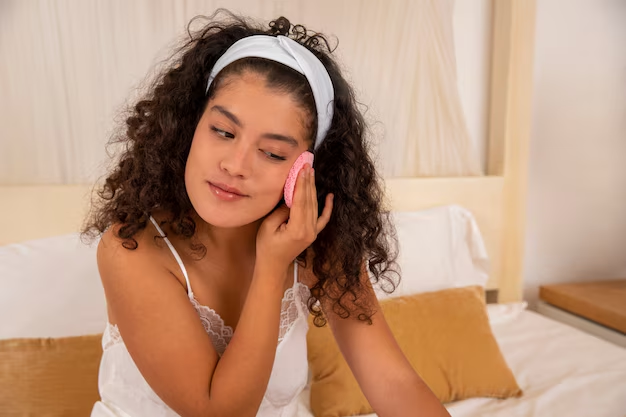Tired of Acne? Here’s How You Can Achieve Clearer Skin
Struggling with acne can feel like a relentless battle, affecting both your appearance and self-confidence. While there are no one-size-fits-all solutions, understanding what helps with acne can empower you to make informed choices that suit your skin type and lifestyle. Here, we break down the essentials to help you on your journey to clearer skin.
Understanding Acne: What Causes Those Pesky Breakouts?
Acne occurs when hair follicles become clogged with oil and dead skin cells. It often manifests as pimples, blackheads, or cysts and can occur on the face, back, chest, and shoulders. Several factors contribute to acne development:
- Hormones: An increase in androgens during puberty can cause enlarged sebaceous glands and excessive oil production.
- Diet: While the evidence is mixed, some studies suggest that foods high in refined sugars and dairy may exacerbate acne.
- Stress: Stress doesn’t directly cause acne, but it can worsen existing conditions by altering hormone levels.
- Genetics: Your family history can play a significant role in your skin’s tendency toward acne.
Understanding these triggers can aid in identifying prevention strategies suited to your individual needs.
Topical Treatments: Your First Line of Defense
Over-the-Counter Options
For many, the first step in tackling acne involves over-the-counter (OTC) treatments, which are easily accessible and affordable. Here are some popular ingredients to look for:
- Benzoyl Peroxide: Reduces bacteria and inflammation.
- Salicylic Acid: Promotes the shedding of skin cells to prevent clogged pores.
- Alpha Hydroxy Acids (AHAs): Helps remove dead skin and reduces inflammation.
These treatments are often found in washes, creams, and gels. It's crucial to follow usage instructions, as excessive application can lead to dryness or irritation.
Prescription Topicals
For persistent acne, prescription topicals might be necessary. These can include stronger concentrations of acne-fighting ingredients and should be discussed with a healthcare provider. Options include:
- Retinoids: Promote cell turnover and unclog pores.
- Antibiotics: Reduce inflammation and bacteria.
- Azelaic Acid: Targets bacteria and reduces inflammation.
Lifestyle Adjustments and Self-care Practices
Skincare Routine
A consistent skincare routine tailored to your specific needs is fundamental. Here’s a simple regimen:
- Cleanse: Choose a gentle cleanser to remove dirt and oil without stripping your skin of natural moisture.
- Treat: Apply your acne treatment of choice. Remember, less can be more—start with a small amount to assess tolerance.
- Moisturize: Even oily skin needs hydration. Opt for a non-comedogenic moisturizer to avoid clogging pores.
- Protect: SPF is non-negotiable. Sun exposure can exacerbate acne and cause long-term skin damage.
Diet and Hydration
While there's no definitive “acne diet,” certain dietary changes may benefit your skin. Consider the following tips:
- Reduce High-Glycemic Foods: Foods like white bread and sugary snacks can spike blood sugar levels, potentially worsening acne.
- Stay Hydrated: Water helps flush out toxins, maintaining skin health.
- Omega-3 Fatty Acids: Found in fish and flaxseed, these can reduce inflammation.
Mindfulness and Stress Management
Reducing stress through mindfulness practices can help mitigate one of the factors that potentially aggravate acne. Techniques like yoga, meditation, or journaling can be beneficial.
When to Seek Professional Help
If over-the-counter treatments and lifestyle changes aren't yielding results, consulting a dermatologist can be a wise move. They can offer:
- Customized Skincare Plans: Tailoring treatments to individual skin types and conditions.
- Advanced Treatments: Such as chemical peels, laser therapy, or extraction procedures that go beyond what home care can achieve.
- Oral Medications: In some cases, oral antibiotics or hormonal treatments such as contraceptives or spironolactone may be indicated.
A professional can provide insights that are personalized and safe.
Exploring Natural and Alternative Remedies
For those interested in a more holistic approach, natural remedies may offer some relief:
- Tea Tree Oil: Known for its anti-inflammatory and antimicrobial properties.
- Green Tea: Both topical and oral consumption of green tea has shown potential in reducing inflammation and sebum production.
- Aloe Vera: Soothes inflammation and aids in skin healing.
Natural doesn’t always mean safe for everyone, so patch testing and consultation with a healthcare provider are recommended.
Staying Consistent: The Key to Managing Acne
One of the most important aspects of treating acne is consistency. Realistically, it can take several weeks to months to see significant improvement, so patience is key. Keep a journal to track what treatments and lifestyle changes work for you and which do not.
Remember that skin is inherently personal. What works for one individual may not work for another. Continuous evaluation and adjustment of your skincare routine, lifestyle habits, and possibly even professional guidance can make a world of difference.
In summary, while acne can be a challenging condition, being informed can help you make choices that dramatically improve your skin health. Consider your options carefully, stay consistent with your skincare routine, and consult professionals as needed for tailored advice.
🌟 Quick Tips for Managing Acne:
- 👩🔬 Know Your Ingredients: Opt for benzoyl peroxide or salicylic acid in OTC products.
- 🚫 Avoid Stressors: Identify and manage stress through mindfulness.
- 🍽️ Mind Your Diet: Limit sugar and processed foods; stay hydrated.
- 🧴 Stay Consistent: Every skincare regimen takes time; patience is crucial.
- 🏥 Consult a Pro: Don’t hesitate to seek professional advice for persisting issues.

